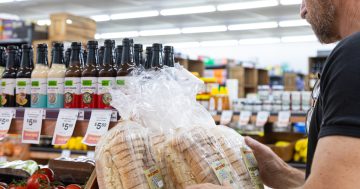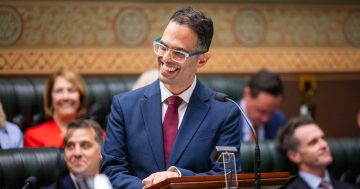
Dodgy fees and online surcharges are in the government’s sights. Photo: File.
Tricky tactics and hidden fees making it harder on consumers are going to be banned in Australia if the Federal Government gets its way.
Prices changing during online transactions (commonly known as ‘dynamic pricing’) for such things as concert tickets will be outlawed once the government knows just how it’s going to do it.
Anthony Albanese said he was taking steps to “stop businesses ripping off Australians” by banning unfair trading practices under the Australian consumer law.
With his government under constant attack from the Opposition over the cost-of-living crisis, the Prime Minister said this move is all about easing financial burdens on consumers and giving suppliers a fair go.
“We’re taking strong action to stop businesses from engaging in dodgy practices that rip consumers off,” he said on Wednesday (16 October).
“Today’s announcement puts businesses engaging in unfair trading practices on notice.
“Hidden fees and traps are putting even more pressure on the cost of living, and it needs to stop.”
From concert tickets to hotel rooms and gym memberships, Labor has them in its sights, with the PM saying Australians are fed up with businesses using ‘tricky tactics’ that make it difficult to end subscriptions or add hidden fees to purchases.
He said such practices can distort purchasing decisions or result in additional costs, putting more pressure on the cost of living.
The crackdown will target ‘subscription traps’ that use arduous and confusing steps to make cancelling a subscription difficult.
Other areas being targeted include ‘drip pricing’ practices, where fees are hidden or added throughout the stages of a purchase; ‘dynamic pricing’, where a product’s price changes during the transaction process, requiring consumers to set up an account and provide unnecessary information to make an online purchase; and businesses making it difficult for a consumer to contact them when they have a problem with their product or service.
Deceptive and manipulative online practices that aim to confuse or overwhelm consumers, omit or hide material information, or create a false sense of urgency or scarcity, are also for the chop.
It will include banning warnings that a customer only has limited time to purchase a product.
But first, Treasury will consult on the design before the government legislates a general prohibition on unfair trading practices and specific prohibitions of a range of ‘dodgy practices’.
A consultation paper on reforms has been released, and stakeholder feedback on the proposed reforms has been invited.
The proposed reforms include introducing penalties for suppliers that refuse to provide consumers with a remedy such as a repair, replacement or refund when required under law.
In the digital economy, it can currently be difficult for consumers to obtain a remedy.
Reforms will empower the Australian Competition and Consumer Commission (ACCC) and state and territory consumer protection agencies to issue infringement notices or pursue penalties for breaches of the Consumer Guarantee and Supplier Indemnification provisions of the Australian Consumer Law.
Following consultation, the government will work with states and territories to settle a final reform proposal in the first half of next year.
Treasurer Jim Chalmers said: “Whether it’s traps that make it difficult or confusing to cancel a subscription, hidden fees and charges at different stages of a purchase, deceptive or manipulative practices online or making it difficult for people to report problems with their products or services, we’re going to change the rules.
“Most businesses do the right thing by Australians and they’ve got nothing to worry about.
“This is all about cracking down on dodgy deals to save Australians money if we can and where we can.”
The announcement follows one earlier in the week about the government’s intention to crack down on debit card fees and surcharges.
Labor has committed $2.1 million of new funding for the ACCC to tackle excessive surcharges, adding that further work is underway to reduce payment fees.
Mr Albanese said he was prepared to ban surcharges from January 2026, subject to the consultation undertaken by the Reserve Bank of Australia.
Opposition Leader Peter Dutton has described it all as a “plan for a plan” with no substance behind any of it.
“The government makes all of these announcements but never delivers anything, and I think this is just the latest example,” he said.
Original Article published by Chris Johnson on Riotact.










